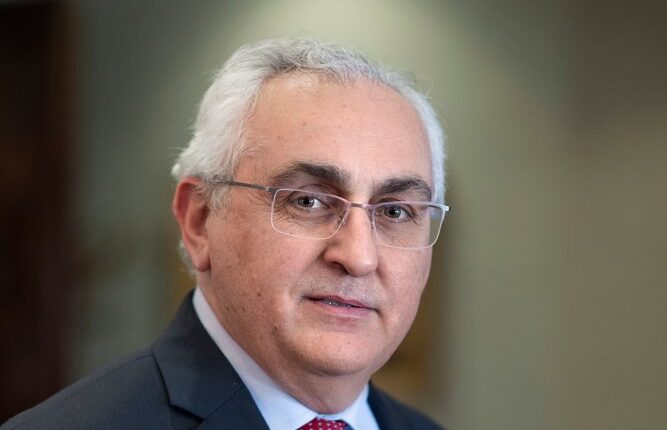Malta’s economic engine is being throttled by a shrinking labour force and growing skills gap – and technology may be the only way out.
Speaking at the launch of the Central Bank of Malta’s 2024 Annual Report, Acting Governor Alexander Demarco warned that labour shortages are increasingly dragging down productivity, urging businesses to invest in automation and AI to remain competitive.
When asked whether targeted support should be considered for Malta’s lagging manufacturing sector, Mr Demarco tells BusinessNow.mt: “The manufacturing sector remains an important one. Naturally, support is necessary – perhaps more incentives to encourage investment in technology. We need to support the sector in adopting modern systems, because it is vital to remain competitive, especially in today’s world where there’s global disruption due to tariffs. International trade will be a major challenge for everyone, not just Malta. Even if we are not significantly impacted at present, we will still feel some effect. It is important to create incentives for investment in both technology and workforce skills so that our businesses remain productive and competitive. That is the only way the economy can move forward.”
On whether bureaucracy and skilled labour shortages are dragging down productivity and GDP growth, he adds that Malta’s population “is what it is.”
“The labour force is shrinking because the population is ageing. But I believe that in today’s technological world, companies should invest in technology. There are new opportunities – for example, the use of AI is an opportunity to reduce dependence on human labour. This can help businesses expand their manufacturing operations,” Mr Demarco concludes.
CBM reports €4.95 million profit for 2024 despite eurosystem losses
The Central Bank of Malta (CBM) registered a profit of €4.95 million for 2024 – making it a rare exception among national central banks in the Eurosystem, many of which continued to incur losses due to high monetary income expenses linked to ECB policy.
Key highlights from the financial statements in the Annual Report include:
- Malta’s economy grew by six per cent in 2024, outpacing most euro area countries. Growth was broadly balanced between domestic demand and exports.
- Despite increased staff costs and ongoing high costs from monetary operations, the CBM posted a profit, bucking the trend across the Eurosystem.
- The Bank increased its investments in ESG-focused fixed income funds and Paris-aligned equities, and published its second climate-related financial disclosure report.
- In response to moderating inflation, the ECB reduced the deposit facility rate from four per cent to three per cent during 2024, with additional cuts announced for early 2025.
- Malta’s HICP inflation stood at 1.8 per cent by year-end, below the euro area average.
- The CBM played an active role in shaping Europe’s digital euro policy and worked on readiness to provide instant payments in 2025.
The full report reflects CBM’s cautious optimism in navigating economic headwinds while maintaining financial and monetary stability.
Employers take umbrage at video promoting public sector’s flexible work arrangements
The video outlines a range of flexibility options available to public sector employees
Malta’s inflation eases to 2.5% in January as food prices remain main driver
While overall inflation continued to moderate at the start of the year, price pressures remain uneven across categories
Final call for food and beverage manufacturers to exhibit at SIAL Paris
SIAL Paris is one of the world’s leading international food and beverage exhibitions






